When planning a 12-day Annapurna Circuit Trek, trekkers face a crucial decision: starting from Kathmandu or Pokhara. Both options come with unique advantages and a similar budget of around $758.76 per person, but the choice can influence the overall experience. Daily meal costs can vary, and with additional expenses for permits and transportation, understanding the nuances of each starting point becomes essential. As trekkers weigh their options, they might find themselves wondering how their choice will shape not just their budget, but also the essence of their journey.
Key Points
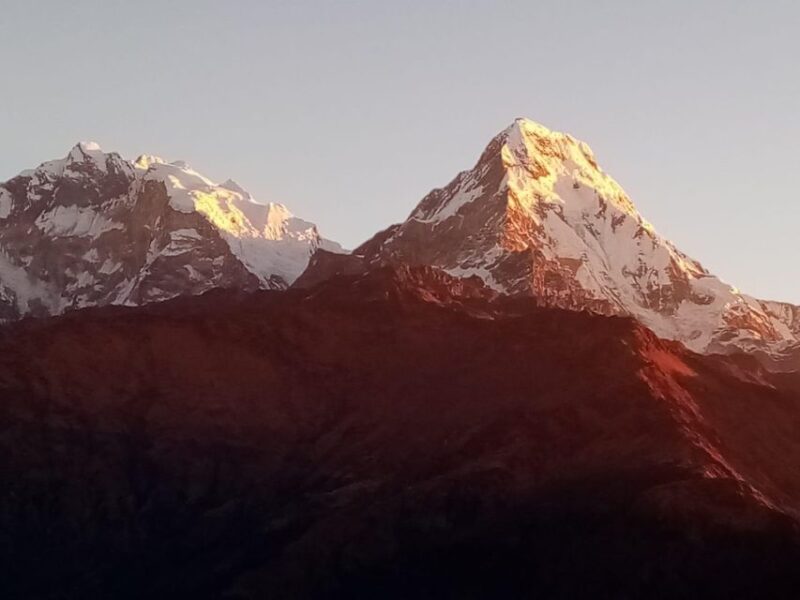
- The trek costs approximately $758.76 per person, covering logistics and accommodations along the Annapurna Circuit.
- Daily meal expenses range from $15 to $30, depending on the dining choices in local guesthouses.
- An estimated $50 is required for permits necessary for trekking in the Annapurna region.
- Budget an additional 10-15% for tips for guides and porters based on the total trek cost.
- Factor in extra funds for personal items and any unforeseen expenses during the trek.
Trek Overview
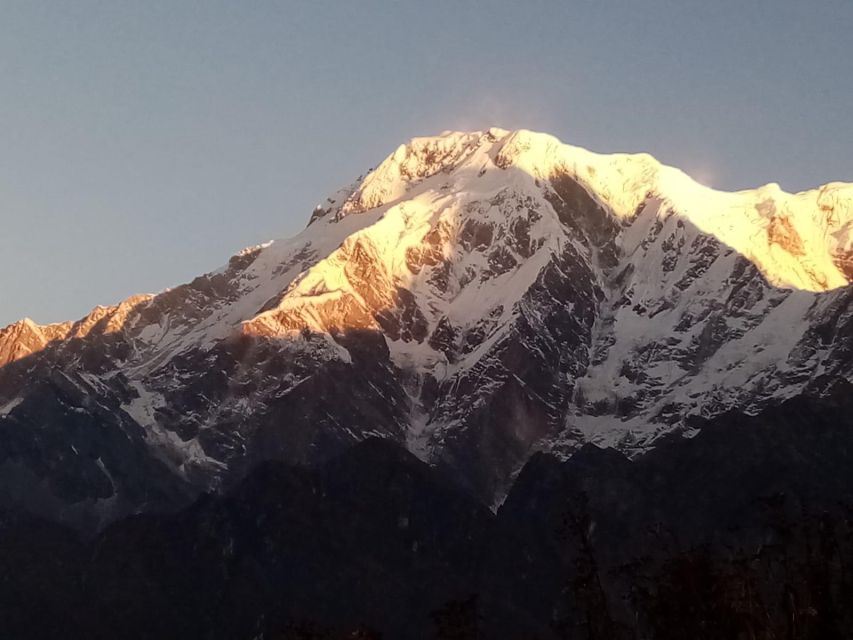
The Annapurna Circuit Trek offers an unforgettable 12-day adventure through diverse landscapes, rich cultural experiences, and stunning views of some of the world’s highest peaks.
Travelers will traverse lush forests, terraced fields, alpine meadows, and high mountain deserts, showcasing Nepal’s natural beauty.
Along the way, they’ll enjoy the vibrant local culture by visiting traditional villages and ancient monasteries.
A highlight of the trek is conquering the Thorong La Pass at 5,416 meters (17,769 feet), one of the highest trekking passes globally.
Plus, trekkers can visit the sacred Muktinath Temple, a significant pilgrimage site.
With breathtaking views of Annapurna, Dhaulagiri, Machapuchare, and Manaslu, this trek promises a truly memorable experience.
You can also read our reviews of more hiking tours in Pisang
Itinerary Breakdown
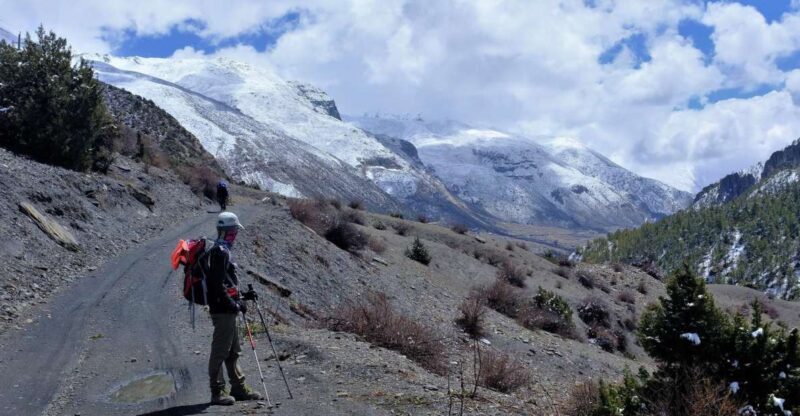
Kicking off the Annapurna Circuit Trek, travelers embark on a scenic drive from Kathmandu or Pokhara to Besisahar, setting the stage for an unforgettable 12-day adventure.
The trek begins with a hike to Bhubhule, followed by picturesque trails leading through Chamje and Bagarchhap. Days four and five see trekkers reaching Chame and Pisang, where they soak in stunning mountain views.
Day six involves a longer trek to Manang, allowing for a crucial acclimatization day. The journey continues to Yak Kharka and Thorong Phedi, culminating in the challenging Thorong La Pass crossing.
Cultural Immersion
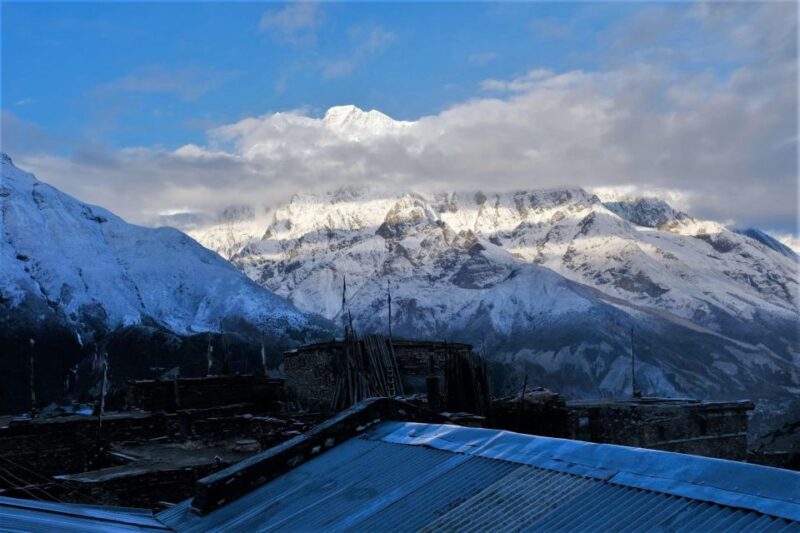
Experiencing the rich cultural tapestry of the Annapurna region, trekkers engage with diverse ethnic groups like the Gurungs and Thakalis, gaining insights into their traditions and daily lives.
As they traverse picturesque villages, they witness unique architectural styles, vibrant festivals, and time-honored customs.
Interactions with locals often lead to shared meals, where visitors savor traditional dishes made with locally sourced ingredients. This culture enriches the trek, allowing participants to appreciate the warmth and hospitality of the communities they pass through.
In villages like Manang and Marpha, trekkers can explore ancient monasteries and learn about the spiritual significance of the area.
Budget Breakdown
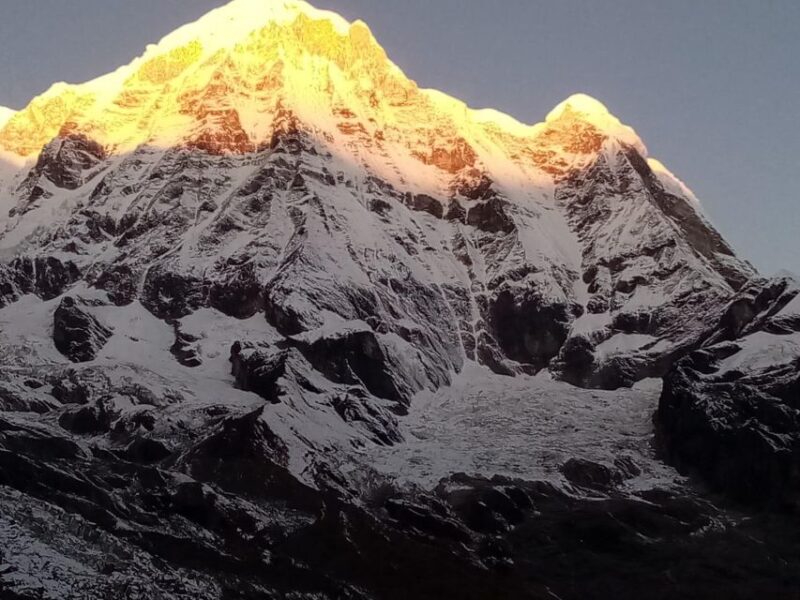
Budgeting for the Annapurna Circuit Trek involves careful consideration of various expenses, ensuring trekkers are well-prepared for their adventure.
First, the trek itself starts at approximately $758.76 per person, covering essential logistics like pickup and accommodation.
Daily expenses for meals range from $15 to $30, depending on dining choices.
Plus, trekkers should account for permits, which typically cost around $50.
It’s wise to budget for extra expenses like tips for guides and porters, usually around 10-15% of the total cost.
Lastly, trekkers might want to set aside funds for personal items, souvenirs, or unforeseen costs.
More Great Tours NearbyEssential Packing List
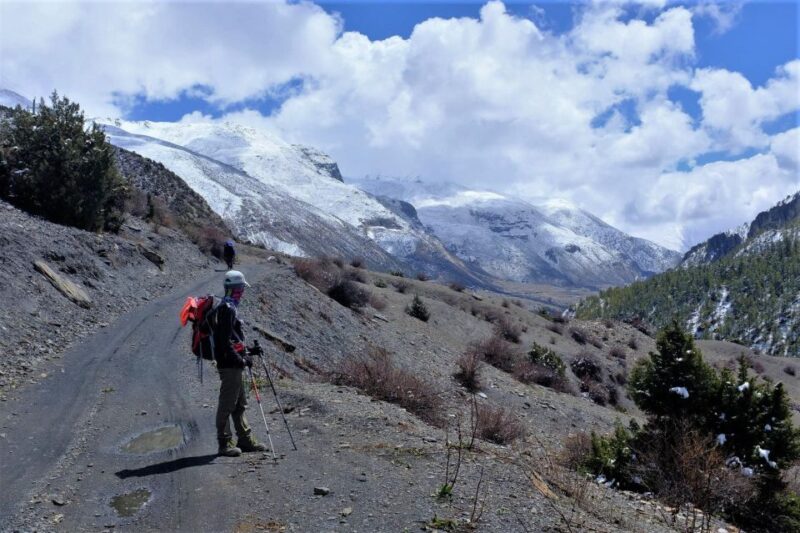
To fully enjoy the Annapurna Circuit Trek, trekkers should prepare a well-thought-out packing list that includes all the necessary gear and supplies for varying weather conditions and altitudes. It’s essential to prioritize comfort and safety while trekking. Here’s a practical packing list to get started:
| Category | Items | Notes |
|---|---|---|
| Clothing | Waterproof jacket | Layering is key |
| Footwear | Sturdy trekking boots | Break them in before trekking |
| Sleeping Gear | Sleeping bag | Rated for cold temperatures |
| Hydration | Reusable water bottle | Stay hydrated |
With these essentials, trekkers will be well-equipped to tackle the diverse landscapes and unpredictable weather of the Annapurna Circuit.
- From Kathmandu: 18-Day Annapurna Circuit & Tilicho Lake Trek
- 28 Days Pisang Peak Climbing,Annapurna Circuit &Tilicho Trek
- 20 Days Annapurna Circuit Trek With Pisang Peak Climbing
- Kathmandu or Pokhara Budget: 12 Day Annapurna Circuit Trek
- Nar Phu Valley Trek – 12 Days
- From Kathmandu Budget: 16 Day Annapurna Circuit Trek
Accommodation Types
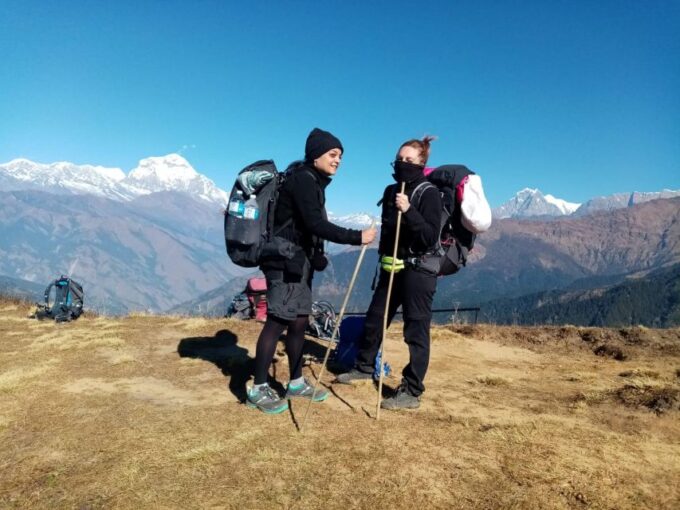
Trekking the Annapurna Circuit offers a range of accommodation types, from cozy guesthouses to basic lodges, ensuring trekkers can find a comfortable spot to rest after a long day on the trail.
Most lodges provide essential amenities, including warm meals, hot showers, and clean bedding. While some trekkers opt for private rooms for added privacy, dormitory-style accommodations are also available for those looking to save money.
In higher altitudes, options become more limited, but travelers can still find welcoming guesthouses that cater to their needs.
Staying in these local lodges not only provides a place to recharge but also allows trekkers to experience authentic Nepali hospitality and culture, enhancing their overall trekking experience.
Transportation Details
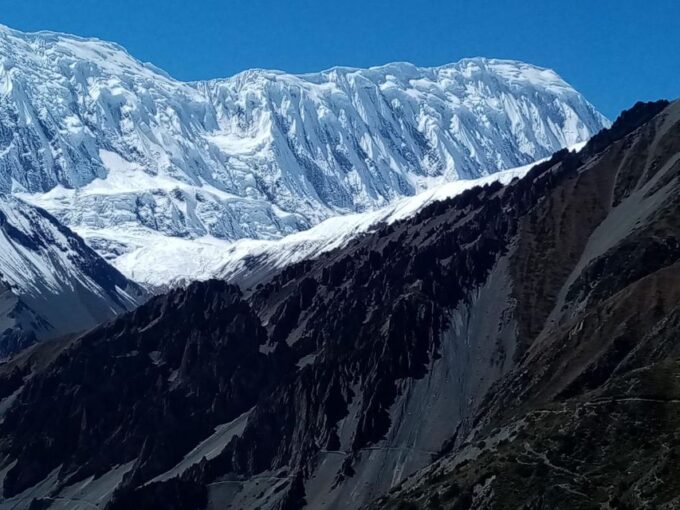
After settling into their accommodations, trekkers need reliable transportation to kick off their adventure on the Annapurna Circuit.
The journey begins with a pickup from either Kathmandu or Pokhara, where a shared bus takes them to Besisahar. This ride lasts about 7-8 hours, offering scenic views along the way.
From Besisahar, trekkers embark on their trek, but transportation remains crucial throughout the journey. After crossing Thorong La Pass, they’ll take a bus from Muktinath to Pokhara, a trip that takes roughly 7-9 hours.
Tips for Successful Trekking
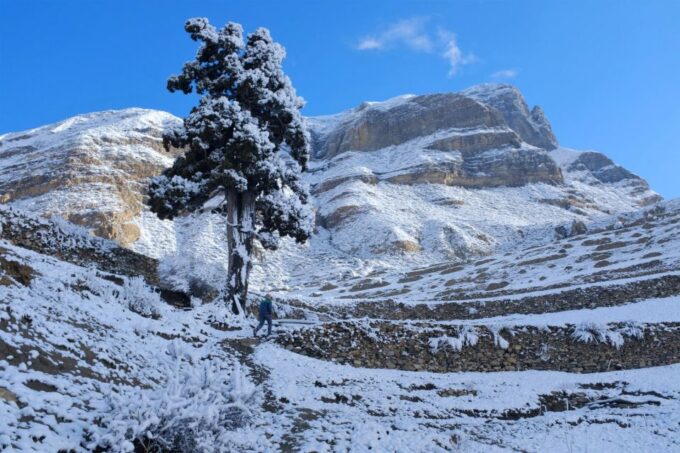
Planning ahead is essential for a successful Annapurna Circuit trek, as it helps ensure trekkers are well-prepared for the challenges and joys that lie ahead.
First, acclimatization is crucial; taking an extra day in Manang can significantly enhance one’s comfort and performance.
Next, packing the right gear, including sturdy hiking boots and layers for varying temperatures, can make a world of difference.
It’s also wise to stay hydrated and maintain a steady pace to avoid exhaustion.
Trekkers should always respect local customs and engage with the communities they encounter.
Lastly, keeping an open mind and a flexible attitude can help one embrace unexpected situations, turning potential frustrations into memorable experiences.
Frequently Asked Questions
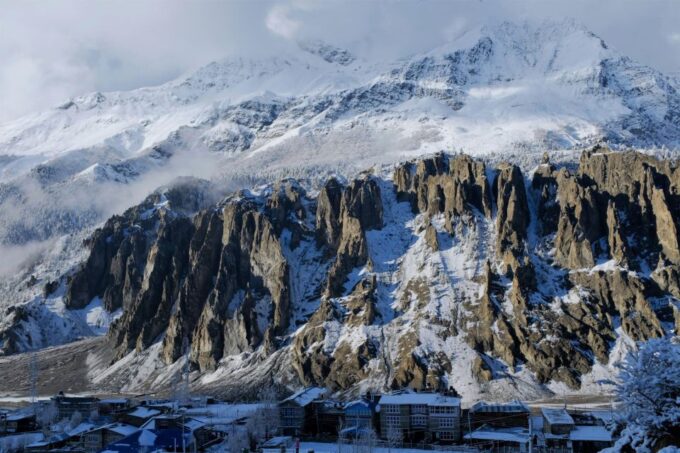
What Is the Best Time to Undertake the Annapurna Circuit Trek?
The best time for the Annapurna Circuit Trek is typically between October and November or March and April. During these months, trekkers enjoy clear skies, moderate temperatures, and vibrant landscapes, making the experience unforgettable.
Are There Options for Vegetarian or Vegan Meals Along the Trek?
Along the trek, trekkers can find plenty of vegetarian and vegan meal options. Most guesthouses offer diverse menus, accommodating dietary preferences. They’ll enjoy local dishes made with fresh ingredients, ensuring a satisfying culinary experience.
How Do I Prepare for Altitude Sickness on the Trek?
To prepare for altitude sickness, he should acclimatize gradually, stay hydrated, and consider anti-nausea medication. Eating light meals and avoiding alcohol will also help his body adjust better to the changing altitude during the trek.
Is Travel Insurance Necessary for the Annapurna Circuit Trek?
Travel insurance’s essential for the trek, covering unexpected events like cancellations or medical emergencies. It ensures trekkers’ peace of mind, allowing them to focus on enjoying the stunning landscapes and cultural experiences along the way.
Can I Charge My Devices During the Trek?
During the trek, charging devices is possible at guesthouses and cafes, but it’s wise to carry a power bank. Most places offer charging options, though availability may vary based on location and electricity supply.
Recap
To sum it up, the Annapurna Circuit Trek promises an incredible experience filled with breathtaking views and rich cultural encounters.
Whether starting from Kathmandu or Pokhara, trekkers can enjoy a well-planned journey within a reasonable budget.
By considering meal costs, permits, and transportation, adventurers can prepare effectively for this unforgettable trek.
With the right packing and a positive mindset, they’re set to create lasting memories in the stunning landscapes of the Annapurna region.
Happy trekking!
You can check availability for your dates here:More Hiking & Trekking Tours in Pisang
More Tour Reviews in Pisang
Not for you? Here's more nearby things to do in Pisang we have reviewed
- 12-Days Short Annapurna Circuit Trek
- From Kathmandu: 10-Day Annapurna Circuit Trek
- From Kathmandu: 12-Day Annapurna Circuit Trek
- Short Annapurna Circuit Trek 09 Days .
- From Kathmandu: 12-Day Scenic Annapurna Circuit Trek
- Annapurna Circuit Trek 14 Days
- 2 Best Guided Tours In Pisang
- 25 Best Treks And Hiking Tours In Pisang
- 6 Best Private Drivers In Pisang
- From Kathmandu: 15 Day Annapurna Circuit With Poon Hill Trek
- Annapurna Circuit Short Trek
- Annapurna Circuit Trek – 10 Days
